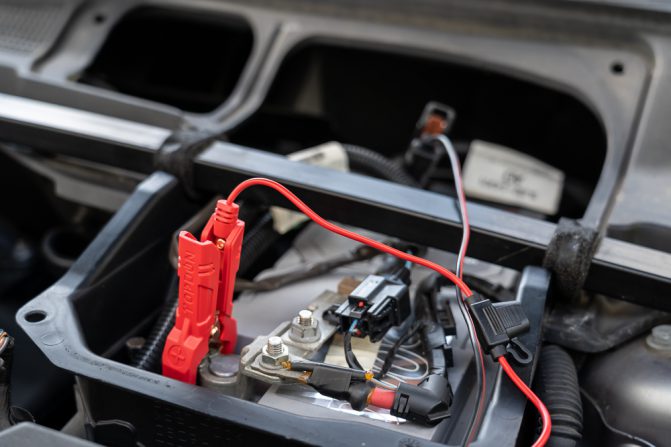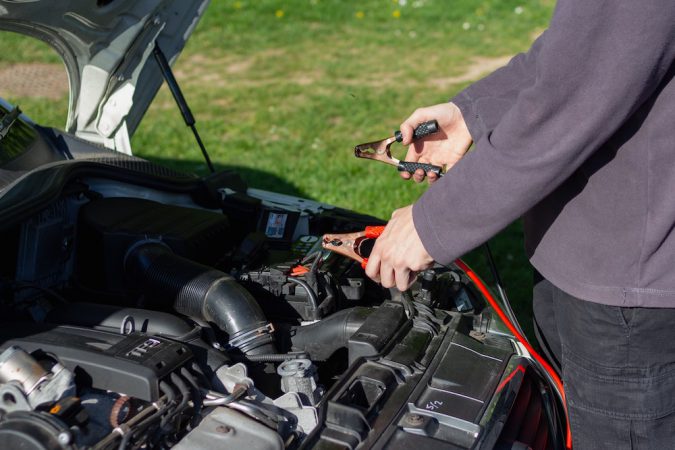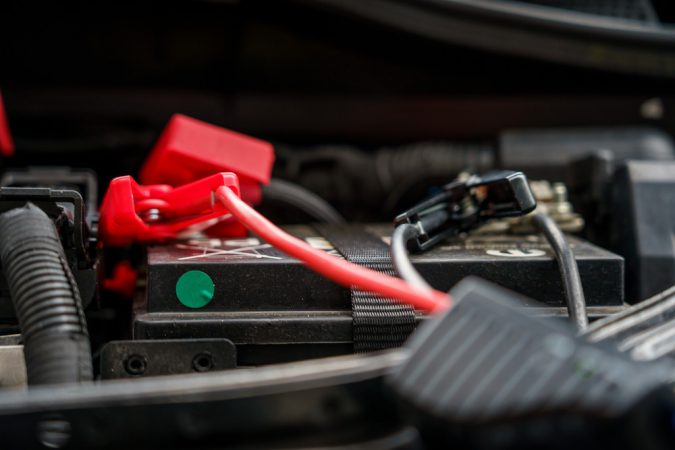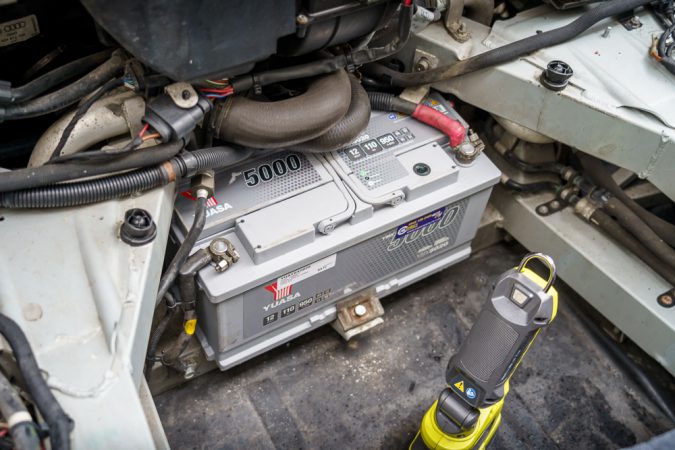An alternator fuse is one of the most important parts of a car. Alternators are responsible for charging the battery and powering electrical components in a vehicle. A blown fuse can cause your engine to stall when it starts. It can make lights flicker at night and headlights stay on when idling in the driveway.
Usually, alternators remain problem-free for a long time, without needing service. Car owners can get nearly 10 years without any issues with the alternator. They are also known to use battery power for some time before failing completely. But once the alternator problems start, you will face several issues with your car. Whether it is the fuse or something else, the earlier you learn how to tell when your alternator fails, the better it is for you.
Under normal circumstances, you may notice an illuminated dashboard warning light prior to blowing a fuse. But not everyone may know what it means. Your car may stall for no apparent reason or experience other electrical problems, such as headlights that don’t turn on or a blower fan that doesn’t work. This may be because of a blown fuse in the alternator.
With a blown fuse, the engine will be unable to produce enough power to start, and the battery will not charge. If you have a blown fuse in your car, this article will give you all the details you need to know.
- What Does It Do
- Blown Fuse Causes
- How To Check
- Fuse Location
- Causes For Failure
- How Do I Replace
- Replacement Cost
What Does An Alternator Fuse Do?
It prevents the battery from discharging too quickly and safeguards against short circuits. Moreover, it protects the wiring harnesses, electrical switches, and other devices.
The fuse is an electrical component that is used to regulate the amount of power that can be drawn by the car’s electrical system. This system often regulates how much power is drawn through the battery, preventing it from being over or undercharged.
When your car’s alternator cannot produce enough electricity, the battery will run out of power and the car will stop running. An alternator fuse can prevent this from happening by preventing a short-circuit in the system.
It can also act as a regulator for the car’s electrical system during moments of high demand, such as while the vehicle is running and the headlights are turned on. The fuse is an extra layer of protection in case something goes wrong. Due to its importance, it is recommended to keep a spare fuse in your vehicle at all times.
What Could Cause A Blown Alternator Fuse?
The alternator in a vehicle provides power by generating electricity from the engine’s rotation. The alternator supplies power to the car’s electrical components as well as the battery. If the alternator is not charging, it can cause a fuse to blow for several reasons.
- Power Surge: It could be the result of a short in the wiring, or it may have been blown by a power surge.
- Excessive Power: Another reason may be that the alternator is drawing too much power from the battery to charge itself. This may cause it to shut down to protect the battery from being excessively drained.
- Bad Wiring: It could also be due to bad wiring. This usually occurs when someone does not replace the wiring harness on their vehicle with one that has been properly modified. Or when they add new wiring and do not add the proper connectors. This may result in several issues, such as overloading, which can lead to blown fuses. It can even start a fire in your engine compartment.
- Poor Connection: Another common reason is a poor connection on the wire leading to the coil. This can happen when the battery charging system is being tested and voltage is sent directly to the coils, which can cause a short circuit.
What Happens If There Is A Blown Fuse?
When a car’s alternator fuse blows, there are a few different things that happen. If a blown fuse is not discovered and fixed promptly, the battery will be drained and the car may not run. You may find that your vehicle will not start.
Other effects could be dimmed headlights or intermittent running lights. There may also be an inability to charge the battery from the engine or from an external charger.
The alternator supplies the power to operate the vehicle’s components. These include electrical devices, including headlights, horns, interior lights, and battery chargers. With a blown fuse, it will not be able to generate enough voltage output to power all these things, causing problems for drivers.
Will My Car Start If The Alternator Fuse Is Blown?
No, the car will not start. The alternator is a key component in providing power to the battery. This power is necessary for certain electrical components to function. This includes the starter, which initiates the engine’s turning by engaging the flywheel.
Besides, there will be an increased load on the starter. The vehicle’s voltage regulator will be unable to regulate voltage and provide power to other electrical components such as headlights or radio. This results in a loss of power and may lead to battery drainage.
How To Check For A Blown Alternator Fuse
One way to check your alternator is by identifying the fuse that is responsible for the function. The fuse will generally look like a yellow rectangle and will be located near the engine compartment. You’ll find it under the hood of your car, in a rectangular box with two connectors coming out of it.
The easiest way to check a fuse is to take it out and inspect it. If the insulator around the outer edge of the fuse is broken, it is a sign of a failed alternator and should be replaced as soon as possible. You could also pull out the fuse box under the dashboard and examine the interior. If it looks like there is a hole where the fuse should be, then that means it has been blown.
Symptoms of A Blown Alternator Fuse
If you believe that it has blown, there are a few different signs to look for.
- The battery light on your car might come on while driving and remain lit when the engine is stopped.
- If the alternator is working properly, your headlights will remain lit for 15-20 minutes after you turn them off.
- If they go out immediately after you turn them off, this may be a sign of a blown fuse.
- A blown fuse will typically result in dimmed headlights and running lights. It will mean that there is no power to any electrical components, such as radios and clocks.
- There may be a low voltage reading on the battery. If the voltage reading on the battery is too low, it may not have enough power to start the engine.
- Your vehicle’s engine may stall when starting up. You might experience symptoms like an engine that either stalls or starts running abnormally fast.
- If the fuse is bad, you might also notice battery fluid leaking from the battery.
Why Does My Alternator Fuse Keep Blowing?
If it keeps blowing, there is most likely a problem with the alternator or its connections. There may be a short, loose, or corroded connection in the wiring that connects the alternator to the battery. The most common cause of an alternator being unable to generate enough power is the use of non-original replacement parts.
The fuse can be blown if the voltage regulator is not working to regulate the output of electricity. This could cause the battery to overcharge, which could damage it. The battery may also continue to supply power even when the fuse has been blown, which would prevent the engine from starting.
The fuse is connected to the ignition of the car, and when it blows, it can be because of a wiring problem or a short in the ignition. If the wiring is damaged and grounds out on the frame, this can cause enough voltage to flow through your wires to blow your fuse. A short in the ignition could also cause this.
Alternator Not Charging
When driving, your alternator should charge the car’s battery as long as there is no significant power loss. If your car doesn’t have a battery light, it can be difficult to determine if the alternator is charging.
If your car is not showing any battery light, this could mean that there are multiple issues with the alternator. First, as some might think, the alternator may be broken or damaged. You can test this by listening for a slight humming sound near the fuse in the car’s engine bay on the passenger side.
Another issue is if there is no power to the battery. The alternator may have gone bad or there may be an electrical malfunction. If the battery light does not turn on, then the alternator may have been disconnected from the battery or it may have been burned out by a short circuit.
Where Is The Alternator Fuse Located?
It is located in the fuse box, or under the hood. The location may vary depending on the make and model of the vehicle. In most vehicles, the fuse is located in the engine bay, often on the driver’s side of the vehicle.
Locating the fuse should not be too difficult for someone who is not a mechanic. However, many cars have different models and systems, and changing the wrong fuse could result in electrical issues.
To locate the fuse, you must first find the fuse panel in your car, and then the proper circuit breaker. The fuse box can be found under the hood of the car, and then the fuse would need to be looked for in that area.
Usually, car manuals do not specify where it is located. Besides, different models of cars may have different locations for their fuse boxes. The location will vary based on the manufacturer, year, age, and model. The owner’s manual will generally tell you how to identify which fuses serve which parts of the vehicle’s electrical system.
A manual’s main purpose is to inform the driver of important safety precautions and how to operate the vehicle. At most, it will list the engine or powertrain components that are most prone to wear and tear.
How Do I Know That It Is An Alternator Fuse Issue?
If the fuse is blown, then it may be that there is a problem with the alternator. Conversely, if the battery has been replaced recently and the car only has the power to operate the lights and ignition for a few minutes, then there may be a bad wiring connection or short circuit in the electrical system.
You would know that the fuse is to blame if the vehicle’s battery is connected and there are no other lights on. Besides, you may not have turned on any other devices, such as headlights.
The best way to determine if an issue is with the fuse and not something else is to check the fuse itself. If the fuse is blown, it means that it was due to the alternator. When you check it, you will be able to see what popped the fuse.
Causes Of Alternator Fuse Failure
One reason could be that the battery may need to be replaced. If the battery goes bad, its voltage will drop below 12 volts, which can cause the fuse to blow.
Another cause could be that the alternator belt may have gone out and needs to be replaced. Additionally, the belt that wraps the pulley could be too loose or too tight, which will cause the alternator belt to slip or break, respectively. It is also possible for dirt to get inside the car’s engine and cause issues with the car’s electrical system.
Another possible issue may lie with the connection of the wiring to the alternator. If wire connections are not tight, they will short out. This will cause a voltage spike that will blow the fuse.
What Happens With A Bad Alternator Fuse?
If the fuse is bad, then it will cause the car to have insufficient voltage. This will reduce the battery’s capacity to produce current, which will eventually lead to it running out of power. All electrical components in the car need a source of power supply and hence will be affected.
It can also cause a few different types of problems in the electrical system. With issues with the alternator, the battery will no longer be charged when there is a dead battery or low voltage.
How Do I Replace The Alternator Fuse Myself?
Different cars have different fuses for different things, but they are all located under the hood of your vehicle. A great place to start looking is in the top left corner of the engine bay. Typically, locating the fuse panel requires removing components from under dashboards or seats to access the fuse box. Once the panels are removed, determining which one holds the fuses can be tough.
Here are the steps to follow:
1. Locate Your Car’s Fuse Panel
Most cars have their fuse panels under the hood, making access easy. Most car owners would know how to locate and use the fuse panel in case there is a problem with the car’s electrical system.
Check the areas around the glove compartment, under the hood, and near the driver’s side door. Keep in mind that your fuse panel may not always be near your battery. In case of any doubt, check online for videos or tutorials on how to locate your car’s fuse panel.
2. Take Off The Cover
Remove the cover of the fuse panel by unscrewing the screws securing it in place. Once the screws are removed, lift the panel until it pops out of its retaining clips. If needed, pry off the cover with a flathead screwdriver.
3. Find The Blown Fuse
A blown fuse in a car can be determined by inspecting the location of the blown fuse. Examine the car’s engine compartment for an obvious blackened fuse holder. Alternatively, look near the battery for a melted or burned-out fuse.
Simply pull out any visible fuses that have burned out. If you can’t find the correct one, use a multimeter to test for continuity and identify which wire has been cut.
4. Take Out The Blown Fuse
A blown fuse has reached its current-carrying capacity and can no longer carry the required current. When this happens, the fuse stops carrying current to protect the circuit from damage. Hence, the blown fuse needs to be replaced with a new one for the circuit to run without interruption.
5. Replace The Fuse With A New One
The first thing to check when removing the fuse and replacing it with a new one is where the blown fuse was located. Make sure there are no frayed wires or damaged parts in that area. Don’t forget to check for continuity after removing a fuse and replacing it with a new one in a car. If there is no continuity, the fuse may have blown due to wiring damage or corrosion.
When replacing a blown fuse in a car, you must ensure that the new fuse is of the same amperage and voltage as the old one. Also, it is important to push the fuse all the way in and make sure it is not shorting out on any other connection points.
Is It Possible To Bypass A Car Alternator Fuse If It Is Blown?
No, it is not possible to bypass it if it is blown. The main reason for this is that the alternator is hooked up to the battery, which provides electricity to power the wiring in the car. When the fuse blows, there will be no connection between the car’s batteries and the wiring in the car. This means that there will be no way to provide power for lights or even turn on a radio.
Reasons For The Alternator Not Working After The Fuse Is Replaced
When the alternator stops working, most people assume that their fuse has blown and search for an easy fix by replacing it. But it may still happen for several reasons.
It is possible that the alternator belt has slipped off or broken. This may lead to other problems, such as low voltage or incorrect timing.
It is possible that the alternator was never mounted properly, or that there may be coolant leakage in the engine compartment. Other causes of an alternator not working are worn bearings or incorrectly connected wires. In such cases, it is best to get the car inspected by a mechanic or a service center.
There could also be other electrical problems with the engine that are contributing to the alternator not working properly.
Alternator Fuse Replacement Cost
Although the fuse itself may cost about $20, the total cost will be higher taking into account the labor cost. You may need to get additional repairs done to replace the fuse with a new one. There may be a cost for testing the alternator for any malfunctions. Lastly, there may be expenses for replacing any damaged parts.
If there are no other problems with the alternator, it would simply mean replacing the blown fuse. This takes about 10 minutes only.
Alternator Fuse Facts:
- The alternator charges the battery and supplies electricity to the vehicle whenever the engine is running.
- A high-amperage fuse or fusible link is usually installed between the alternator’s battery terminal and the battery.
- The primary alternator fuse is a circuit protection device that prevents a circuit overload due to excessive current flow that could lead to melted wires, damaged components, and even fire.
- A blown alternator fuse will prevent the charging system from working correctly, leading to a variety of issues that can mimic a bad alternator.
- Symptoms of a blown alternator fuse include a dead battery, lighting issues, warning lights, and other electrical oddities.
- Testing an alternator fuse is no different from testing any other type of fuse, and a digital multimeter (DMM) can be used to check for continuity.
- The process of replacing an alternator fuse will depend on the type of fuse you’re dealing with, and you need to disconnect and isolate the negative battery cable before replacement.
- Alternator fuses usually cost less than $20 for the part alone, but the exact cost depends on the year, make, and model of your vehicle.
- The location of the alternator fuse and/or fusible links varies by vehicle, and the owner’s manual should be consulted to determine their location.
- Alternator fuses do not blow for no reason, and a blown fuse means there’s a problem that needs to be addressed, except for the case when the vehicle has been worked on or jump-started recently.
Conclusion
If you have recently noticed that your car alternator is acting up and that it has blown a fuse, then there could be a variety of causes as given above.
You can fix the problem by following the steps mentioned in the article. You can easily replace it yourself. But if not done correctly, it might lead to worse problems. A car’s alternator is what generates electricity for the car. A lack of power will mean that the battery will drain and the electrical components will not work.
To avoid this, it is important to replace a blown fuse as soon as possible. It is not too difficult to replace a blown alternator fuse if you follow the steps described above. If you need help, you could visit a mechanic or a service center for an inspection and repair.




